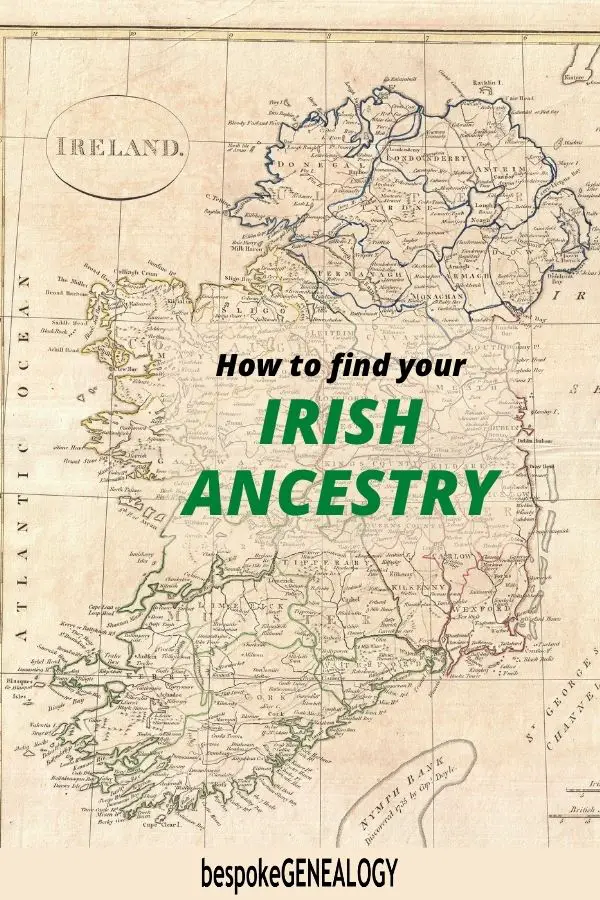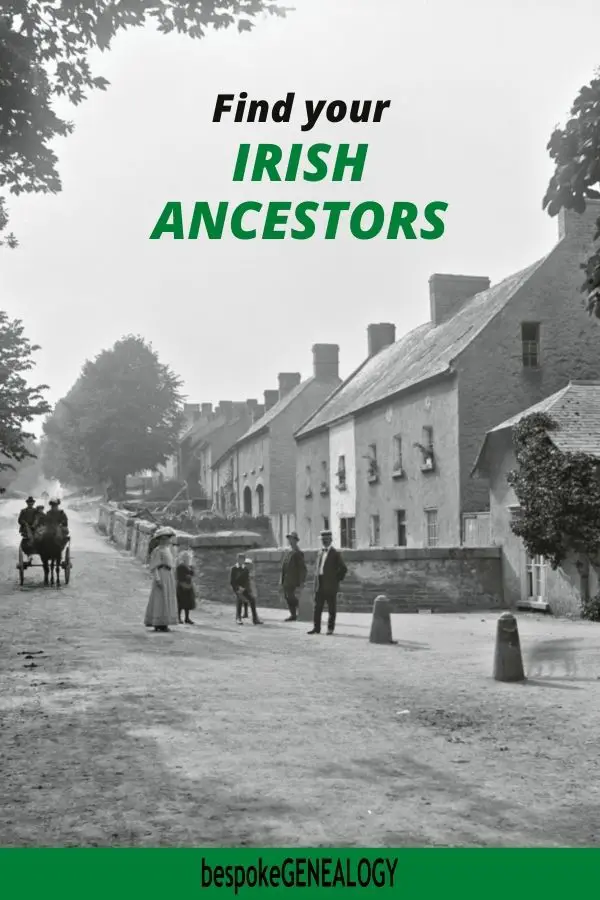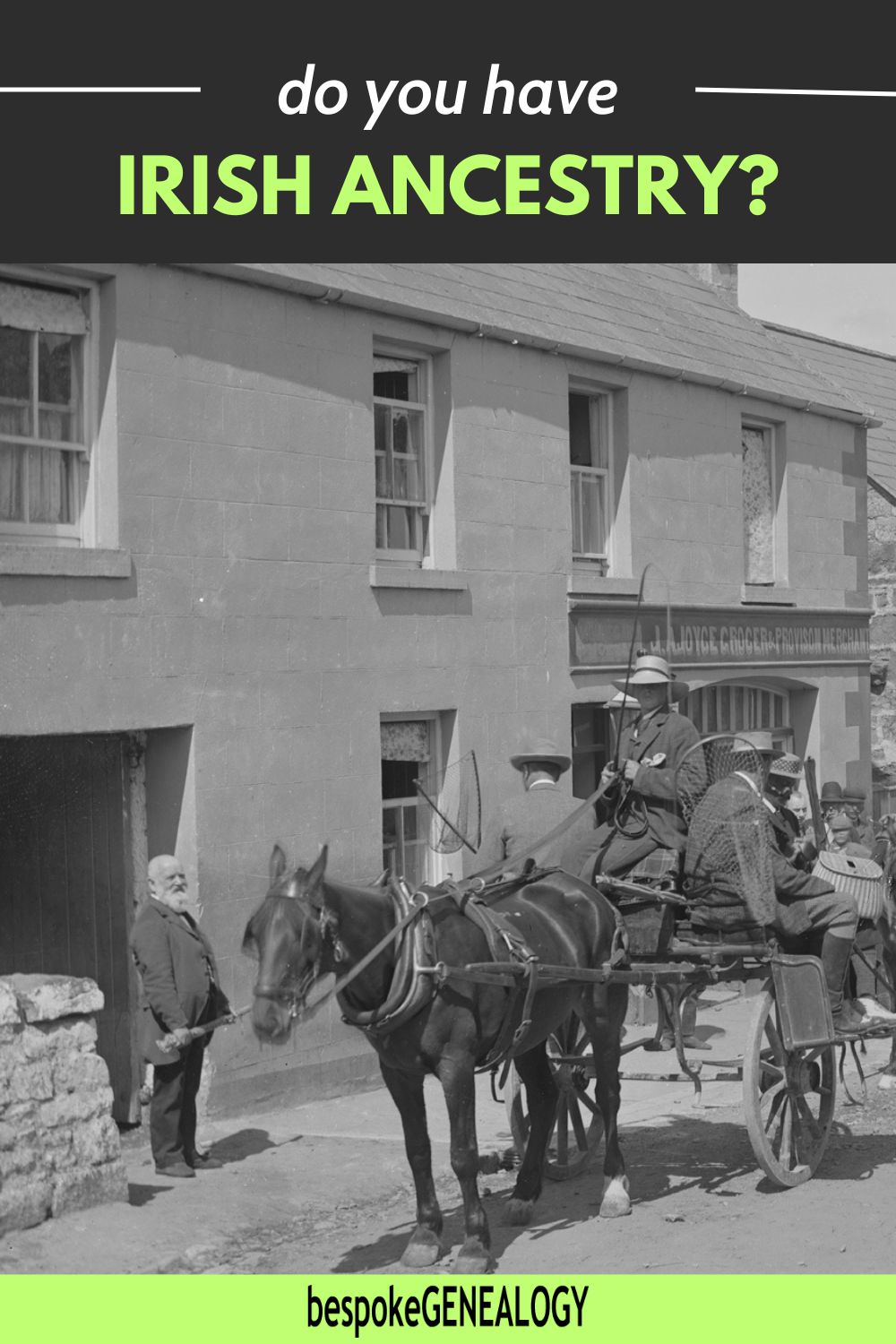Find your Irish Ancestry
If you have Irish ancestry, here are links to our guides to the main record sets you’ll need to find your roots. There are guides for census returns, civil birth, marriage and death records, parish registers, burial records, newspapers and more.
Note, it should be noted that Ireland lost many records in 1922 during the civil war. So, research can be harder here than in many other countries. These guides should help you make the most of what’s available.
The Important Records
Censuses
Census returns are usually amongst the most valuable records available to family researchers. Unfortunately, the big problem in Ireland is that, apart from a few fragments, no 19th century census returns survive. Only the 1901 and 1911 censuses are currently available in their entirety, although they are free to access.
As in the UK, thanks to privacy laws, census returns are released after 100 years have passed. This means that the 1911 census is the most recent available. No census was taken in 1921 due to the war of independence, so 1926 will be the next one released, probably in 2027.
See our guide to find out more about the Irish censuses; which records survive and how to access them:
Griffith’s Valuation
The loss of most pre-1901 census records in Ireland means that it can be difficult to locate Irish ancestors in the 19th century. So, a very useful census substitute is Griffith’s Valuation. This was a mid 19th century survey of all property and land on the island of Ireland. Our guide looks at the component parts of this important free resource as well as how to access and use it.
Civil Registration
Official government registration of all births, marriages and deaths began later in Ireland than in England and Wales. Non-Roman Catholic marriages were registered from 1845 and all marriages, births and deaths from 1864. Almost all records survive and most of them for the whole island of Ireland (up to 1920-22) can be downloaded for free from an official website. Many more records post 1922 for the Republic of Ireland can also be downloaded for free. Records from 1922 in Northern Ireland can be ordered online (for a fee) from GRONI.
Full details of Irish civil registration and how to access the records can be found in our guide:
Church Records
Until 1869, the Anglican Church of Ireland was the established church. Unfortunately, 75% of the church’s historic parish registers were lost in the 1922 fire in the Public Records Office.
However, the majority of the population belonged to the Roman Catholic Church and many of these records do survive. The bad news is that, due to restrictions placed on this church, most records don’t start until the 1820s
Our guide looks at the records that can be accessed online and where to find many of the others:
Many Roman Catholic parish registers are available online for free at the National Library of Ireland website. This guide looks at these records in detail and how you can use the Findmypast index to access them easily for free:
Burial Records
Not all burials took place in church graveyards. The late 19th century saw the huge growth of municipal cemeteries and many burials, especially in urban areas, took place in these. If men were in the armed forces and died during a conflict, they were usually buried in cemeteries near where they fell. Here are some sources for burial records:
Newspapers
Historical newspapers can be very useful for family history, even more so in Ireland with so many missing records. Very often you can find family notices; birth, marriage and deaths as well as engagements, anniversaries, in memoriam, birthdays and congratulations. In addition, ancestors can be found in obituaries, news articles, advertisements and even letters to the editor.
Here’s a look at the British Newspaper Archive which has an extensive collection of Irish papers along with other relevant collections:
A very useful free resource for Ireland as well as Britain is the Gazette. The online archive allows access to 350 years’ worth of military, legal and personal notices. See our guide to The Gazette:
For more useful posts see the Ireland blog page.
Other useful articles are:
Use Historical Directories to find your Ancestors
Where to find British & Commonwealth Military Records
Irish Genealogy Records: Fire and Reconstruction
Find your British and Irish Ancestry for Free
The Top 25 Irish Genealogy Online Record Collections
24 Essential Online Irish Genealogy Resources
How to use John Grenham’s Irish Ancestors Website
10 Tips for finding your Emigrant Ancestors
125 Free Irish Genealogy Online Resources
And for links to great articles about Irish genealogy and history see: The Complete Guide to Irish Genealogy
Please pin a pin to Pinterest:












